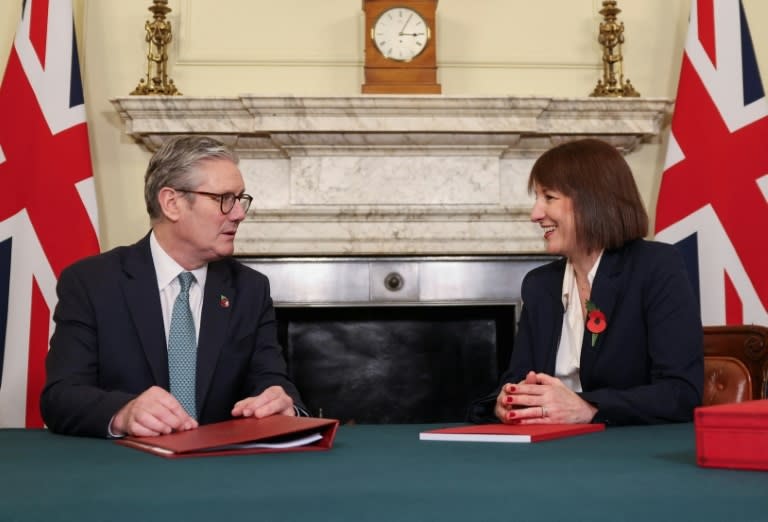The Labour government in the UK presents a bold budget, introducing substantial tax hikes totaling £40 billion alongside ambitious investments in public services. Chancellor of the Exchequer, Rachel Reeves, defends these decisions amid criticism from the Opposition, signaling a challenging political landscape.
Tax Increases in the British Budget - Opportunity for the Opposition


Tax Increases in the British Budget - Opportunity for the Opposition
United Kingdom - The Labour government under Keir Starmer presented its first budget since taking office in July, with unapologetic tax increases amounting to 40 billion pounds alongside significant investments in public services. The Chancellor of the Exchequer, Rachel Reeves, faced the challenging task of justifying the government's decisions before the House of Commons. This was a pivotal moment for the Labour party, whose popularity was already at an all-time low.
"It's a fundamental moment of choice for the UK. I have made my choices. Responsible choices," she concluded after a 1-hour and 15-minute speech.
Former Conservative Prime Minister Rishi Sunak criticized the budget as a "classic Labour program: more taxes, more borrowing, no growth plan, with the workers paying the price."
Among the tax increases revealed was an increase in employer contributions, estimated to generate 25 billion pounds annually. This move, criticized by Conservatives even before its official announcement, is seen as contradicting Labour's promise to spare "working people," as they will ultimately foot the bill through their wages.
Another notable increase is the capital gains tax rate, set to be up to 24%, although it will remain "the lowest among all G7 economies," according to the Minister.
"Turning the Page" -
Various sources of revenue and savings had already been revealed, such as the increase in VAT on private schools or the discontinuation of energy checks for millions of retirees, a move that has faced significant opposition even within the Labour party.
The Office for Budget Responsibility, the public budget forecasting body, estimates that the UK's taxation level will increase from 36.4% of GDP in 2024/2025 to 38.3% in 2027/2028, marking a "historic high."
"We must restore economic stability and turn the page on the past 14 years," justified Rachel Reeves, targeting the previous Conservative governments.
She reiterated concerns over a "black hole" of 22 billion pounds in public finances, which she claims were left by the Conservatives - a claim they dismiss as "fiction." She also emphasized the enormous debt, currently at 100% of GDP.
"The only way to improve living standards and boost economic growth is to invest, invest, invest," she reiterated, listing the billions earmarked for schools or housing construction.
The NHS, the overwhelmed healthcare system, will receive a substantial budget increase of 22.6 billion pounds for this year and the next, "the largest increase" since 2010 outside of Covid, as praised by Rachel Reeves.
She also pledged 100 billion over five years for public services and infrastructure, made possible by an upcoming change in budget rules, a financial maneuver to borrow more but solely for investments.
"Completely Absurd" -
"The decision to let borrowing run wild completely undermines the claims (of Rachel Reeves) about the state of public finances," reacted Rishi Sunak, leader of the Conservative opposition.
"If they were truly in such a critical situation, as she said, we should have seen a significant reduction in borrowing today," he added, also criticizing her remarks on the Conservatives' "legacy."
"This budget is not as bad as expected in terms of taxes," says Kathleen Brooks of XTB, echoing several analysts. However, she notes that the OBR's growth forecasts on Wednesday are "not exceptional": +1.1% this year, then +2% next year, with slightly downgraded forecasts beyond.
The pound remains under pressure after these announcements, down 0.1% against the dollar, affected by the slight downgrade in long-term growth forecasts. Nevertheless, the British currency slowed its initial decline, thanks to the less significant tax hikes than anticipated.
Following Ms. Reeves' speech, the UK's 10-year bond yields rose overall, climbing temporarily to 4.41%, a session high since early November 2023, before slightly dropping back.

 বাংলা
বাংলা  Spanish
Spanish  Arabic
Arabic  French
French  Chinese
Chinese 